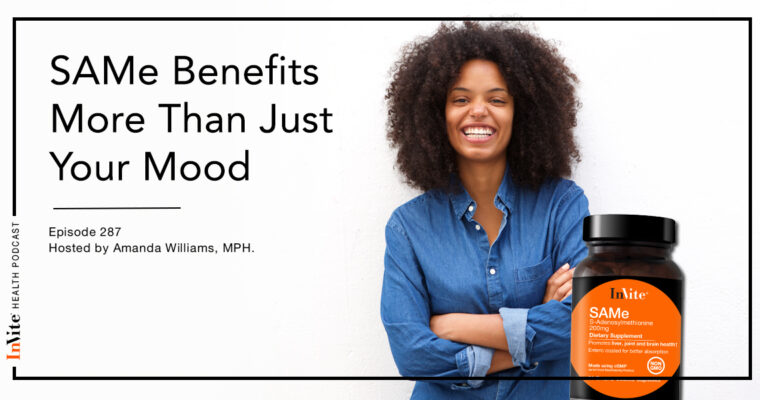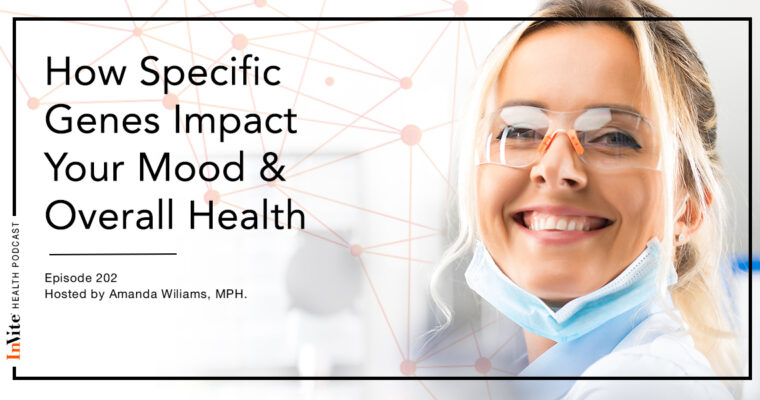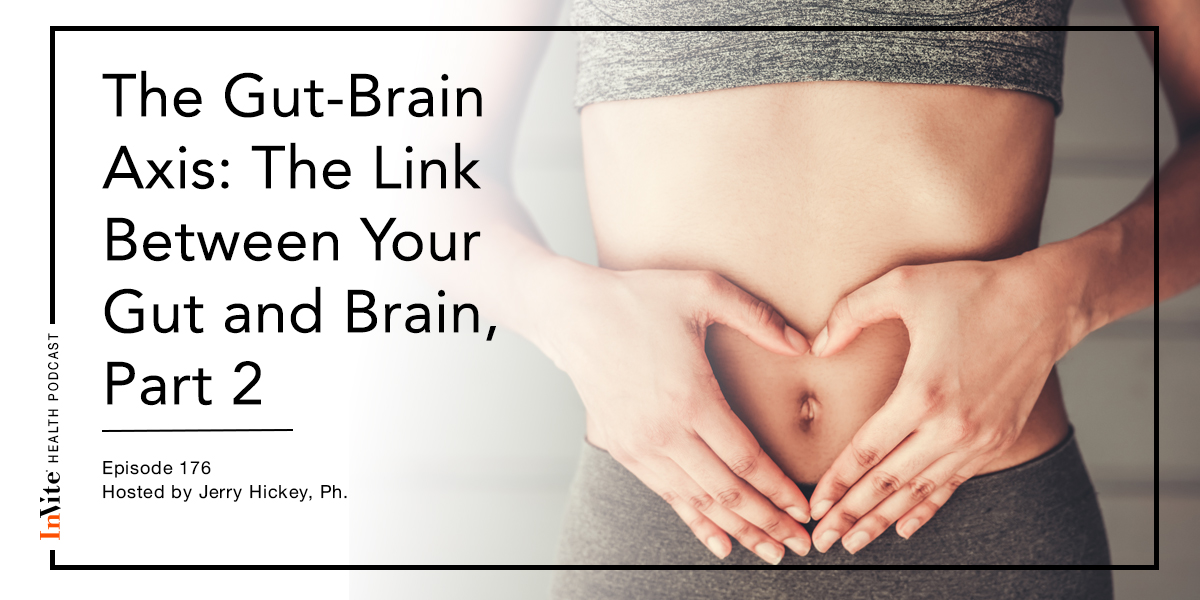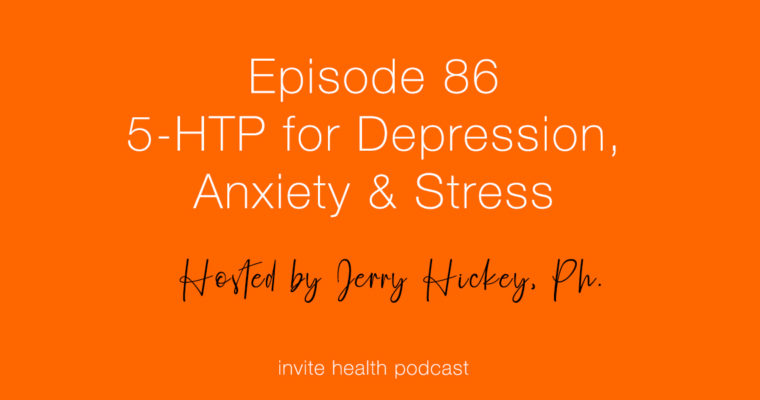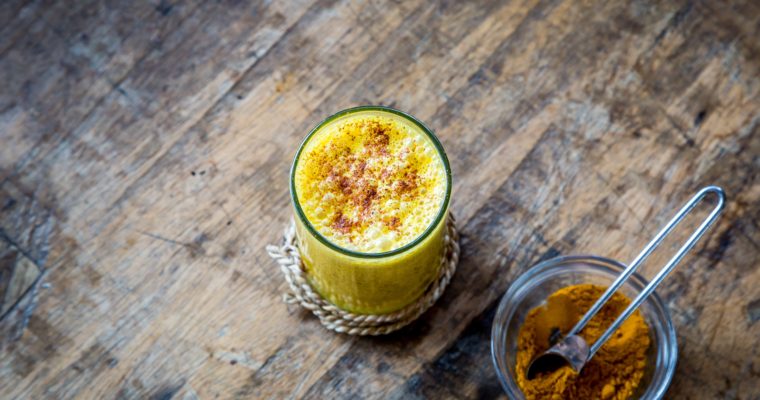Invite Health Podcast, Episode hosted by Jerry Hickey. Ph
Subscribe Today!
Welcome back to our episode on the gut-brain axis, the influence your gut has on your brain. In Part 1, I discussed how gut bacteria and your diet influence your memory. Check out Part 1 here if you missed it! Now, we’re going to look at how the gut impacts your mood.
PROBIOTICS, DEPRESSION AND STRESS
A study done at McMaster University in Canada published in the Journal of Gastroenterology showed that probiotics can improve symptoms of depression. Researchers worked with 44 adults who had irritable bowel syndrome (IBS) and mild to moderate anxiety and/or depression. Half of the group took a daily dose of bifidobacterium longum for 12 weeks, while the other half took placebo at the same frequency. At the 6 week mark, 64% of the patients taking the probiotic had decreased scores on tests for depression. Only 32% of patients on placebo saw decreases in these scores. The patients were also given functional MRIs, which showed that the improvement in these scores was connected to changes in multiple brain regions involved with mood control.
Griffith University in Queensland, Australia performed a systematic review and meta analysis that was published in the Journal of Alternative and Complementary Medicine. The researchers looked at 7 different studies with over 300 participants and found that probiotics reduce psychological symptoms, stress, depression and anxiety. This helps prove the validity of the gut-brain axis.
The Benefits of Probiotics for Allergies – Invite Health Podcast, Episode 124. Listen Now >>
A study in the Journal of Cephalalgia looked at patients who suffer from migraines. The researchers worked with people who have episodic migraines, meaning they have 14 or less migraines a month, as well as people who have chronic migraines, meaning 15 or more migraines a month. A group of these patients took a probiotic supplement with 14 different strains of gut-friendly bacteria for 10 weeks, while another group took placebo. Researchers found that the probiotic significantly improved a number of migraine-related symptoms in the patients. Patients with episodic migraines saw a 40% decrease in migraine days, and people with chronic migraines saw a decrease of 45%. Researchers also found that the probiotics reduced the intensity of episodic migraines by 29%, and of chronic migraines by 31%.

These studies are evidence that bacteria in the intestines affect the health of the brain. For all studies mentioned in this podcast episode, please listen to the full episode now by clicking the play button above or wherever you stream podcasts!
WHAT REDUCES HEALTHY BACTERIA IN THE BODY?
Here are some things that can reduce the amount of healthy bacteria you have in your body:
- NSAID drugs like Advil, Aleve, Celebrex and Aspirin
- Certain drugs for high blood pressure
- Certain drugs for diabetes
- Antibiotic drugs
- Steroid drugs like Medrol and Prednisone
- Hormones like estrogen and progesterone
- Aging
- Obesity/having a big gut
- Elevated blood sugar
- Smoking
- Alcohol
- Inhalation of cleaning products such as ammonia and bleach
NOT ALL PROBIOTICS ARE EQUAL
Not all probiotic supplements are made the same. Here are some qualities that you should look for when choosing a probiotic supplement:
- “Colony-forming unit” written on the label: This means that the bacteria in the supplement are actually alive.
- At least two strains of healthy bacteria, with at least a billion of each, in the formula: This is what makes the probiotic beneficial.
Questions about the gut-brain axis, Probiotics or anything regarding digestion/brain health? Leave us a comment below to join the discussion!
Thank you for tuning in to the Invite Health Podcast. For all studies mentioned in this podcast episode, please listen to the full episode now by clicking the play button above or wherever you stream podcasts! You can find all of our episodes for free wherever you listen to podcasts or by visiting www.invitehealth.com/podcast. Make sure you subscribe and leave us a review! Follow us on Facebook, Twitter and Instagram at Invite Health today. We’ll see you next time on another episode of the Invite Health Podcast.


